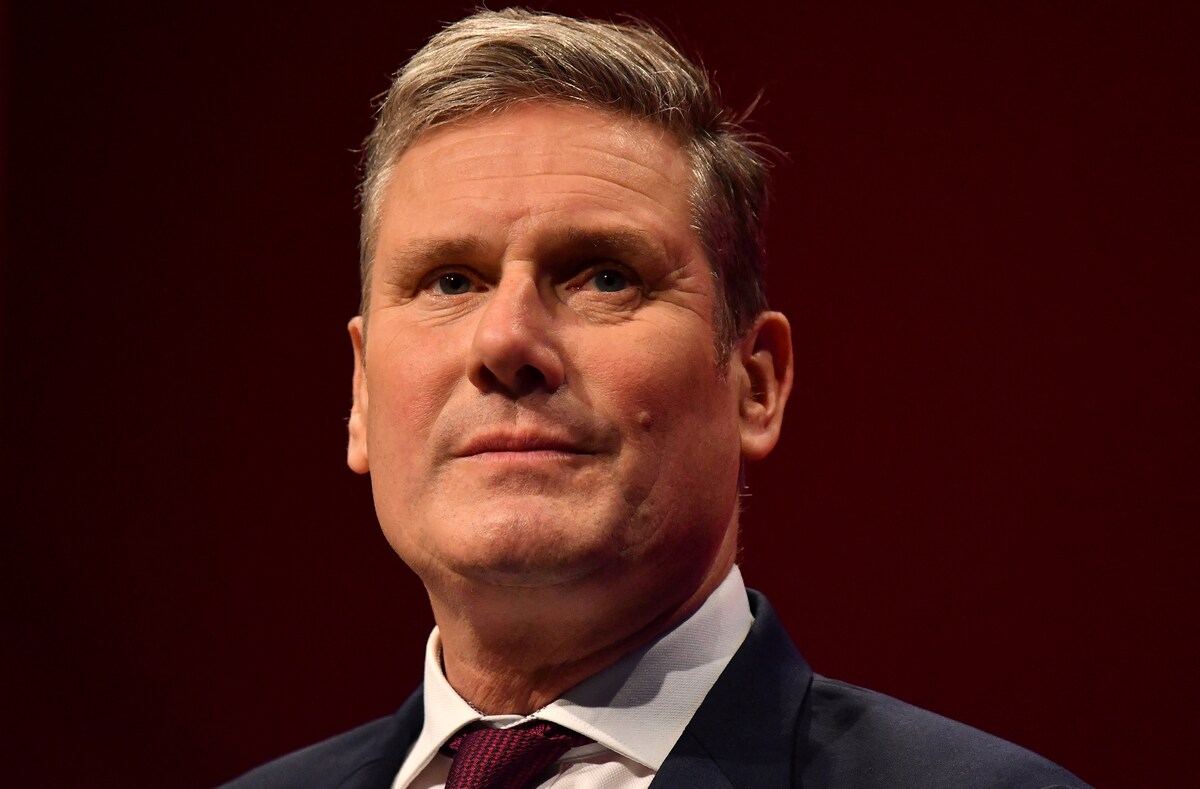London, United Kingdom – A pragmatic, safe pair of hands or an uninspiring flip-flopper? Labour leader Keir Starmer is a former human rights lawyer currently on track to become Britain’s next prime minister.
When Starmer took charge of the party three years ago after the disastrous reign of socialist Jeremy Corbyn, he vowed to unite it and get it back on a path to power.
The 61-year-old has moved the main opposition back to the centre ground, quietened dissent among the left, and rooted out anti-Semitism within its ranks, making Labour an electable proposition.
“He has absolutely put Labour in a place where it could win the next general election, and a lot of people thought that was really, really ambitious and quite unlikely,” political scientist Karl Pike told AFP.
Labour heads into its annual conference in Liverpool, northwest England, this weekend enjoying double-digit leads in opinion polls ahead of a general election expected next year.
Many observers say that is largely down to chaotic Conservative rule that has resulted in three different prime ministers in four years, following upheaval over Brexit and the Covid pandemic.
A cost-of-living crisis and strikes plaguing several sectors are also seen as contributing to Britons’ desire for change after 13 years of Tory government, rather than overwhelming support for Starmer himself.
He has, in fact, negative approval ratings.
“He’s not an inspirational speaker. I mean, he’s not Tony Blair,” said Steven Fielding, a politics expert at the University of Nottingham and Labour party member.
“(But) I think Starmer has calculated that if he just presents himself as a sober, serious, boring person after all of the nonsense that’s gone on before… that will just be about enough to get through.”
Starmer, a keen footballer and Arsenal fan, was born in London, one of four siblings, to a toolmaker father and a nurse mother, both of whom were animal lovers who rescued donkeys.
“Whenever one of us left home, they replaced us with a donkey,” he has joked.
His unusual first name was his socialist parents’ tribute to Labour’s founding father, Keir Hardie.
At school he had violin lessons with Norman Cook, the former Housemartins bassist who became DJ Fatboy Slim.
After legal studies at the universities of Leeds and Oxford, Starmer turned his attention to radical causes, defending trades unions and anti-McDonald’s activists.
Mother’s death
The married father-of-two is friends with fellow human rights lawyer Amal Clooney from their time together at the same legal practice.
In 2003, he began his move to the establishment with a job ensuring police in Northern Ireland complied with human rights legislation.
Five years later, he was appointed director of public prosecutions for England and Wales by the then Labour government.
Between 2008 and 2013, he oversaw the prosecution of MPs for abusing their expenses, journalists for phone-hacking, and young rioters involved in 2011 unrest across England.
He was knighted by Queen Elizabeth II and in 2015, was elected as a member of parliament, representing a seat in left-leaning north London.
Just weeks before he was elected, his mother died of a rare disease of the joints.
In 2021 he broke down in tears in a TV interview as he described how her agonising death “broke” his father.
In 2016, Starmer joined a rebellion by Labour MPs over Corbyn’s perceived lack of leadership during the EU referendum campaign.
It failed, and later that year he rejoined the top team as Labour’s Brexit spokesman, where he remained until succeeding Corbyn in April 2020.
Starmer has endured attacks from the Tories for dropping a number of pledges he made during his successful leadership campaign, including scrapping university tuition fees.
Critics say he is indecisive and accuse him of failing to spell out a clear vision for the country.
Supporters, though, say he is right to keep his cards close to his chest until an election date is announced.
“He probably is right to be cautious but I think his egg is about to hatch now and we’ll see more from him in the coming months,” Dave Mullaney, a 54-year-old Labour party activist in the southwestern city of Bristol, told AFP.

